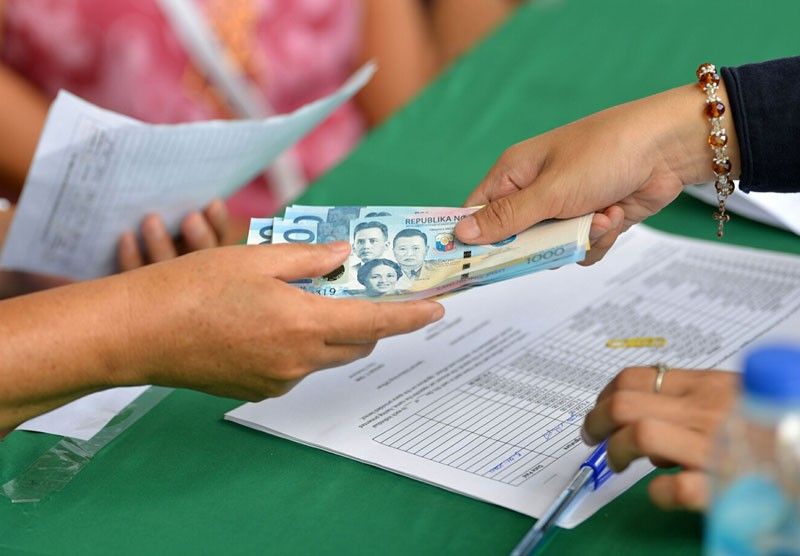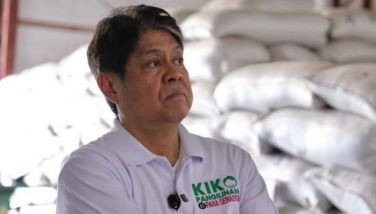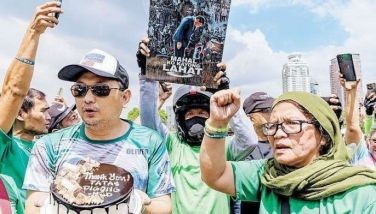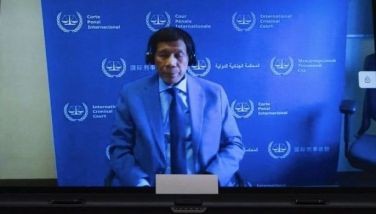Next cash aid to include 5 million more households

MANILA, Philippines — Around five million eligible households will be included in the second tranche of the Social Amelioration Program (SAP), bringing to 17 million the targeted beneficiaries this month, Executive Secretary Salvador Medialdea said yesterday.
Eligible persons living in enhanced community quarantine areas will be prioritized in the distribution of cash assistance in the amount of P5,000 to P8,000 each, Medialdea added.
Those who are living in areas categorized as general community quarantine will also be getting the much needed boost amid the coronavirus disease 2019 (COVID-19) pandemic.
In a two-page memorandum dated May 22, Malacañang also ordered the Inter-Agency Task Force for the Management of Emerging Infectious Diseases (IATF) and concerned agencies to work on the immediate distribution of cash assistance to the impoverished sector of society.
“For the second tranche of the SAP implementation, include the additional five million eligible households to the 12 million beneficiaries under the Assistance to Individuals in Crisis Situation (AICS) program of the DSWD (Department of Social Welfare and Development),” Medialdea said.
The AICS is part of DSWD’s protective services for the poor, marginalized and vulnerable or disadvantaged individuals. The AICS has been implemented by the DSWD for decades, as part of its technical assistance and resource augmentation support to LGUs (local government units) and other partners.
Medialdea said the second tranche of cash assistance will be “subject to validation by the concerned national government agencies in coordination with the respective local government units.”
“While it is only natural that most beneficiaries would come from those still living in enhanced community quarantine areas, as stricter kinds of community quarantine deprive more people of means of support, household beneficiaries most affected by the continuing restrictions in the operation of certain industries and sectors in areas under a general community quarantine may still be considered for the second tranche,” he said.
On orders of President Duterte, the Palace official also called on the DSWD, Departments of Labor and Employment, Trade and Industry, Agriculture, Budget and Management, Finance, Information and Communications Technology (DICT) and the National Privacy Commission (NPC) for cooperation to speed up the processing of the distribution of SAP.
Malacañang reiterated Duterte’s call to ensure transparency in the program, which will also include the posting of names of the beneficiaries online.
Medialdea ordered the DSWD, DICT and the NPC to create a platform that would reflect the recipients of the emergency cash subsidies.
This would be in line with the need to accelerate the delivery of the SAP benefits to qualified beneficiaries and to promote transparency, the Palace official said.
Malacañang also wants to make sure that only those who are eligible under the different programs of the SAP will get the emergency financial subsidies.
The Office of the President came out with the decision following the recommendation of the IATF embodied under Resolution No. 31 (s. 2020) dated May 1 and pursuant to Republic Act No. 11469, otherwise known as the Bayanihan to Heal as One Act.
The Palace also called on the IATF to retain the original numbers and budget for the first tranche of the SAP, which was earlier pegged at over P 200 billion, to cover the 18-million beneficiaries.
Medialdea also directed the DSWD, DICT and NPC “to expedite the creation of the online portal containing the list of eligible household beneficiaries of the SAP.”
The online data portal will be subject to the limits provided under relevant laws governing data privacy. The list shall include such details as beneficiaries’ barangay, municipality/city, and region; the amounts they received and the specific program under which they received government assistance.
According to Medialdea, the portal will provide access to the public to verify the entitlements of the recipients and also to express their feedback on the program.
“The online portal must include a mechanism to receive feedback from the public to assist the government in assessing its performance in delivering the assistance, determining whether an investigation against specific persons is necessary and identifying persons and areas that were not covered,” Medialdea added.
- Latest
- Trending
































